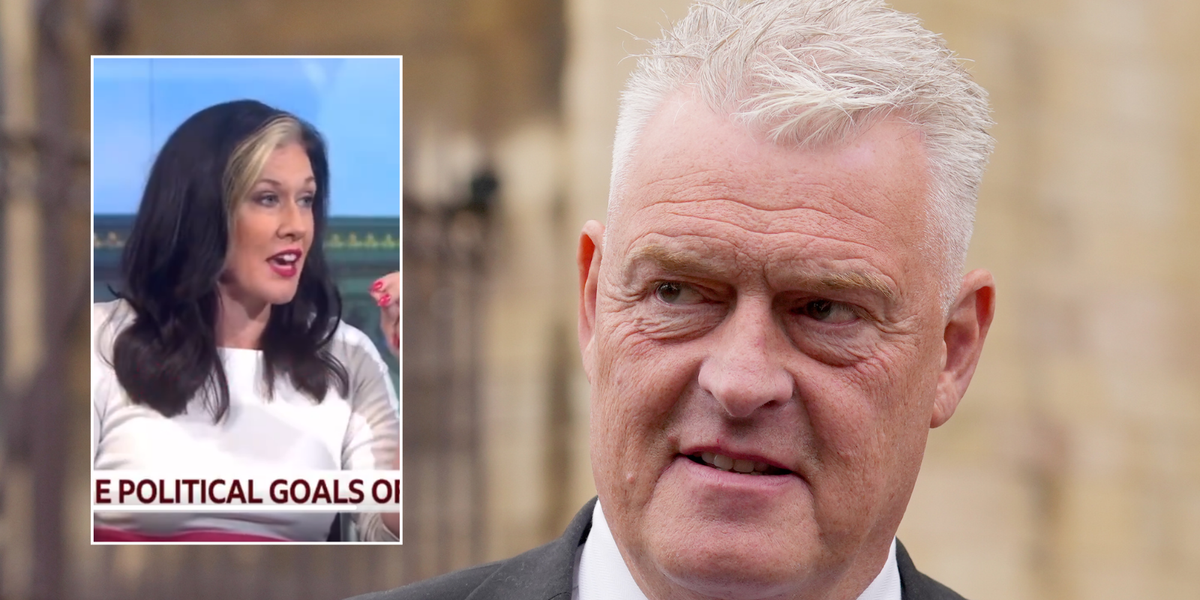Title: The Political Tug-of-War: Lee Anderson vs. Natalie Fleet on Economic Responsibility
In the ever-evolving landscape of British politics, recent exchanges between politicians have highlighted the ongoing debates surrounding economic responsibility and party credibility. A notable incident occurred when Lee Anderson, the Reform MP for Ashfield, drew attention to a clip featuring Natalie Fleet, the Labour MP for Bolsover, which showcased her apparent economic ignorance. This exchange has sparked discussions about the competence of political leaders and the trustworthiness of their promises.
The Context of the Controversy
The incident unfolded during a segment of Politics Live, where host Geeta Pendse posed a critical question to Fleet regarding her party’s plans for economic management. She asked, “You talk about responsible government, you want to be the next party in government, what would you do differently? Where would you find this extra money?” In a moment that many found surprising, Fleet candidly admitted, “You know, the honest answer to that is, I don’t know.” This admission has since been seized upon by Anderson, who used it to question Fleet’s capability to lead and manage the economy effectively.
Anderson’s Response and Political Strategy
In response to Fleet’s comments, Anderson published the clip on social media, framing it as evidence of Labour’s inadequacy in addressing economic challenges. He juxtaposed Fleet’s admission with her recent claims about Labour’s commitment to responsible governance, stating, “the grownups are in charge.” This phrase has become a rallying cry for Labour, as they attempt to position themselves as the mature alternative to the Conservative Party, which has faced its own share of controversies and criticisms.
Anderson’s strategy appears to be twofold: first, to undermine Fleet’s credibility and, second, to bolster the image of the Reform Party as a viable alternative for disillusioned voters. By highlighting Fleet’s lack of a concrete economic plan, Anderson aims to reinforce the narrative that Labour is out of touch with the realities facing ordinary citizens.
Labour’s Image Crisis
The Labour Party has been grappling with its image in recent weeks, facing accusations of sanctimonious virtue signaling as they attempt to differentiate themselves from the Conservatives. Despite their efforts to present a united front and a responsible governance approach, the party has been mired in allegations of cronyism and sleaze. High-profile appointments of donors to key positions within the civil service and Sir Keir Starmer’s acceptance of substantial freebies have raised eyebrows and led to a decline in public trust.
Recent polling data reflects this shift in public perception. Starmer’s approval ratings have plummeted, with some surveys indicating that he is now less popular than Prime Minister Rishi Sunak. Furthermore, the Reform Party has gained traction, particularly in Wales, where they have emerged as the third-largest party, surpassing the Conservatives, who failed to secure a single seat in the general election.
The Future of Political Trust
As the political landscape continues to shift, the question of trust remains paramount. Voters are increasingly skeptical of traditional party lines, seeking alternatives that resonate with their concerns and aspirations. Anderson’s critique of Fleet serves as a reminder of the importance of economic literacy and accountability in political discourse.
The ongoing dialogue between parties will likely shape the future of British politics, as voters weigh their options in a climate of uncertainty. The challenge for Labour, and indeed for all parties, will be to demonstrate not just a commitment to responsible governance but also the ability to deliver tangible results for the electorate.
Conclusion
The exchange between Lee Anderson and Natalie Fleet encapsulates the broader tensions within British politics today. As parties vie for public trust and support, the ability to articulate clear, credible economic strategies will be crucial. The electorate is watching closely, and the stakes have never been higher for those who aspire to lead. In this decade of national renewal, the question remains: who will truly deliver for the working people of Britain?
